One of the areas I cover at this newsletter is retail. Sometimes the intersection between business and land use, and other times just history of or general appreciation for various stores.
Today, I’m writing about Micro Center, a computer and electronics sales, service (e.g., computer upgrades), and parts superstore. There’s one in Fairfax, Virginia, which I’ve been in, and one in Rockville, Maryland, which I’ve driven by. There are 25 Micro Center stores throughout the country, national but thinly spread: one California location, one Michigan location, several in New York and Ohio, etc.
Micro Center was founded in 1979 in Ohio by two ex-Radio Shack employees. The first store was tiny, and over the years it evolved into one of a handful of “category killer” computer superstores, each roughly around 30,000 square feet. This was once a retail family: Computer World (I think that was its name); CompUSA; Fry’s Electronics; others. Micro Center may be the last computer superstore left; certainly, it is the largest. For decades they’ve even had a line of private-label products; I once found an old laptop power adapter at a garage sale from the Micro Center brand. These guys have been around a long time.
It’s such a cool thing to see a store like this still in business, and doing pretty well. It looks and feels like an older retail format, and you almost expect to see three-inch-thick laptops, translucent CRT iMacs, and Intel 486 displays. But they’ve got all the current tech, and all sorts of assorted parts (PC fans, good-quality replacement CD jewel cases, hobbyist stuff like Raspberry Pi equipment.)
So I want to show you this thriving retail anachronism.
The outside:
A big view:
A couple of showrooms:
Some of the high-end keyboards:
Some of the computer cases:
And the blank media aisle:
All of that is not nearly everything in this store. For example, you could build your own desktop with a whole department of boards, cards, and internal parts.
The vibe of the place, including the layout and décor, is a nice mix of modern and old-fashioned. It feels like an older type of store: a big-box retailer that uses good design to obscure its basic boxy/warehouse shape. The areas with lower ceilings, or the little rooms with doorways, for example, do this. It’s quite pleasant. It’s also sad, in a way, because it demonstrates how greatly the big-box experience can be elevated without all that much extra expense. But it takes a thoughtfulness and deliberate effort that most retailers just aren’t interested in. And maybe most consumers.
Anyway, this isn’t just a cool selection of computer stuff. It’s a really, really good execution of the “category killer” idea—combining the economies of scale of a big-box store with the knowledge and depth of a specialty store.
I’ll be writing soon about Bed Bath & Beyond, which was not the greatest execution of this retail concept. So it’s nice to find and appreciate one that is.
Related Reading:
A Small Town With a Big Department Store
Thank you for reading! Please consider upgrading to a paid subscription to help support this newsletter. You’ll get a weekly subscribers-only post, plus full access to the archive: over 600 posts and growing. And you’ll help ensure more material like this!




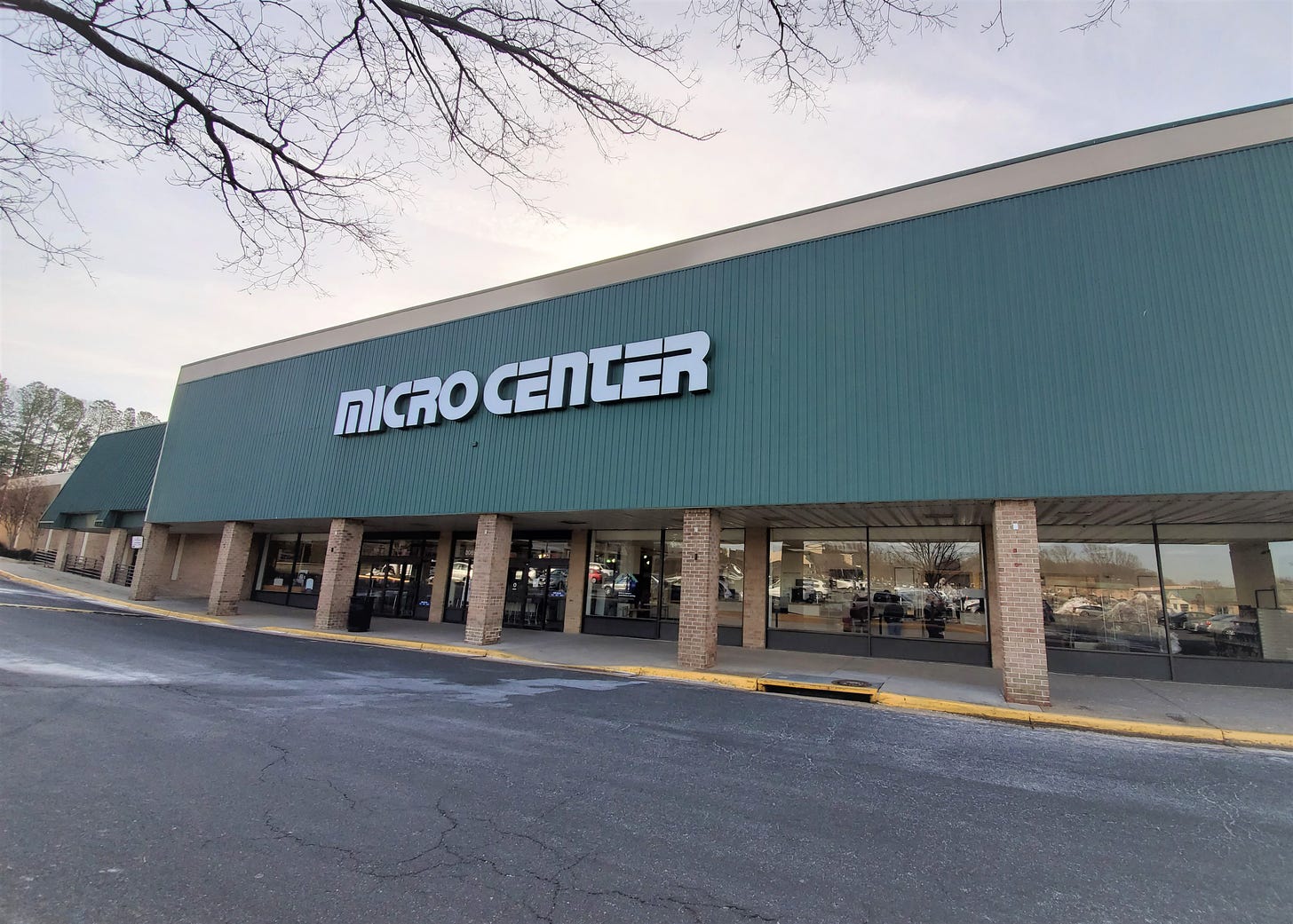
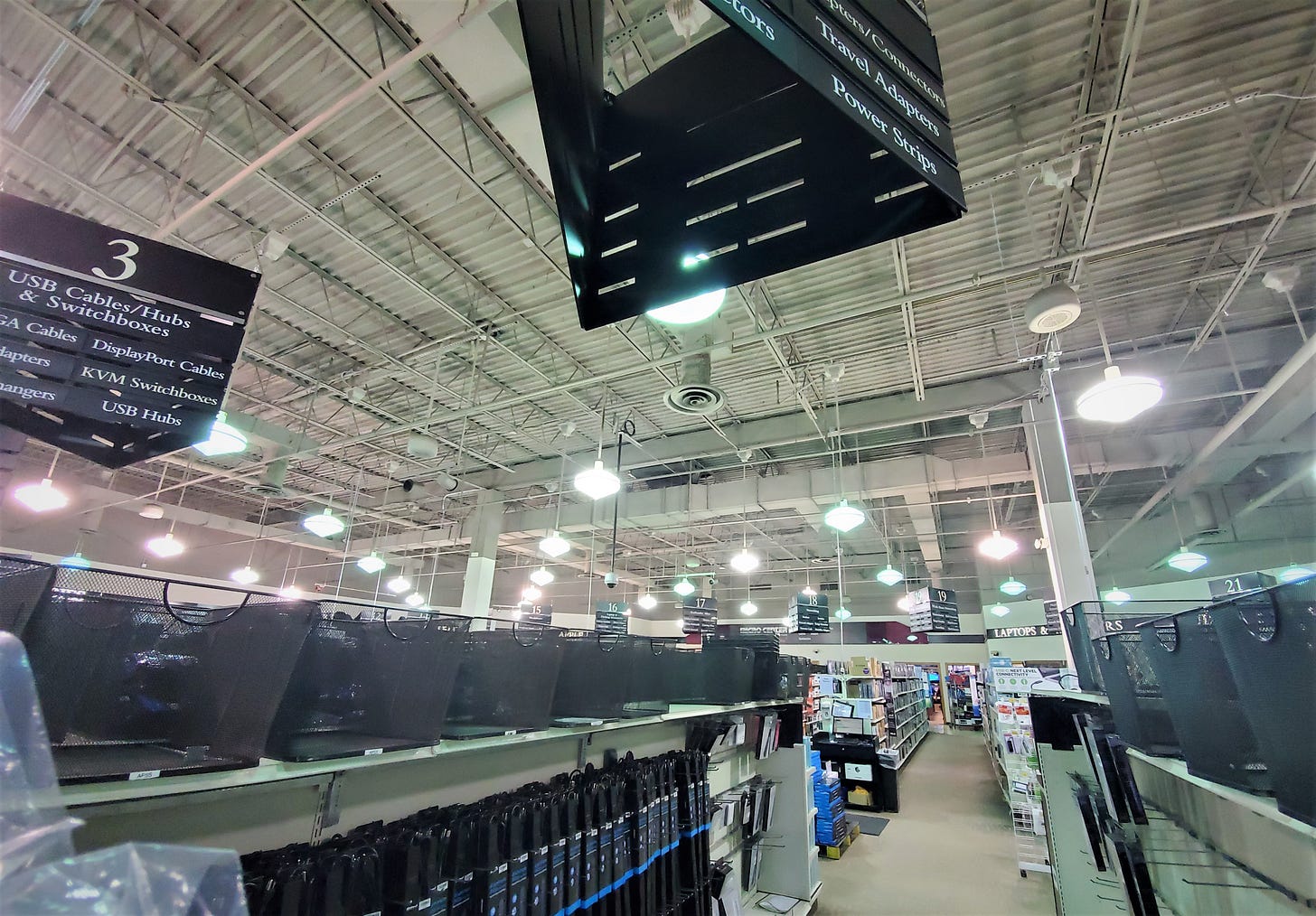
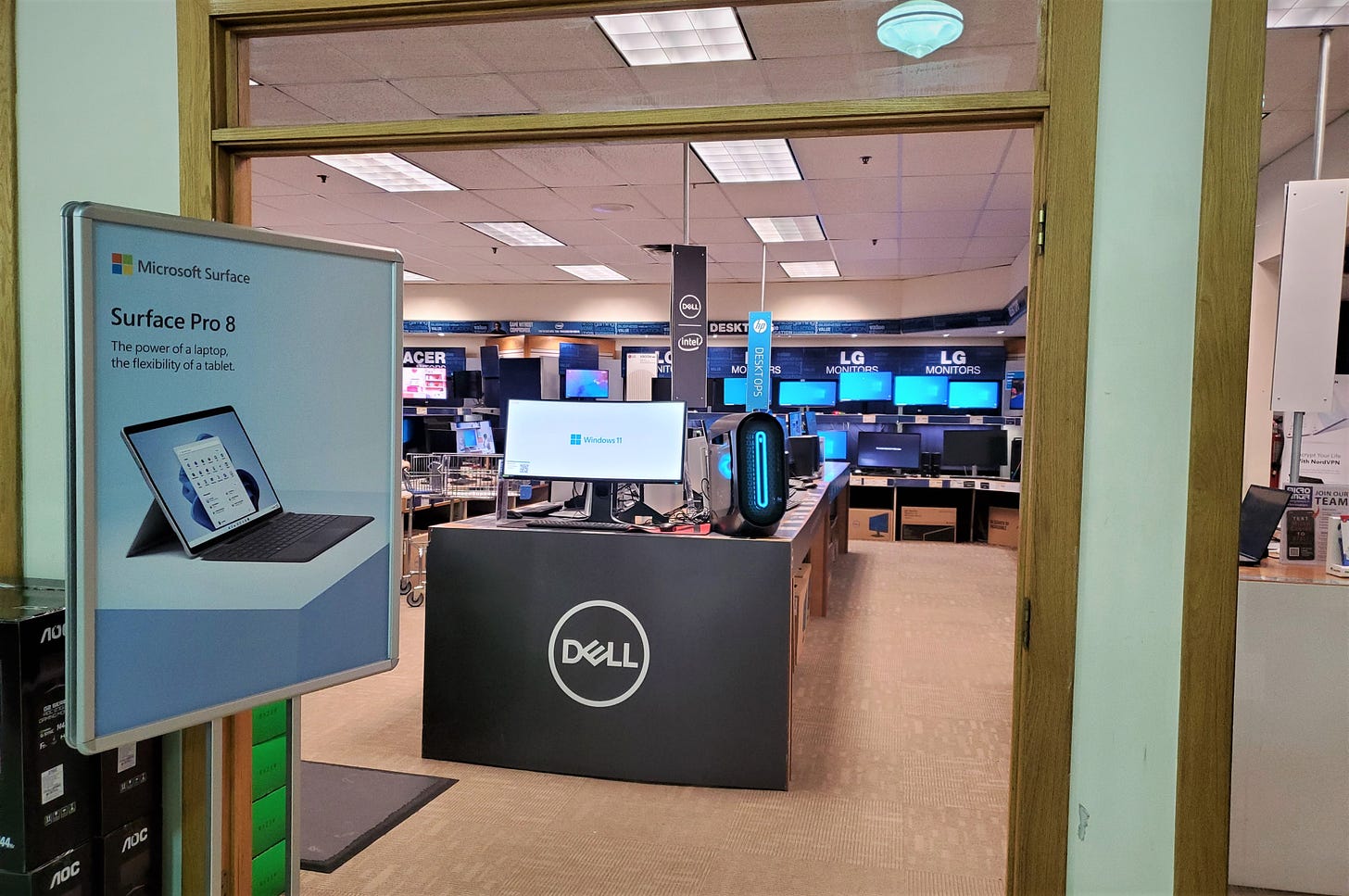
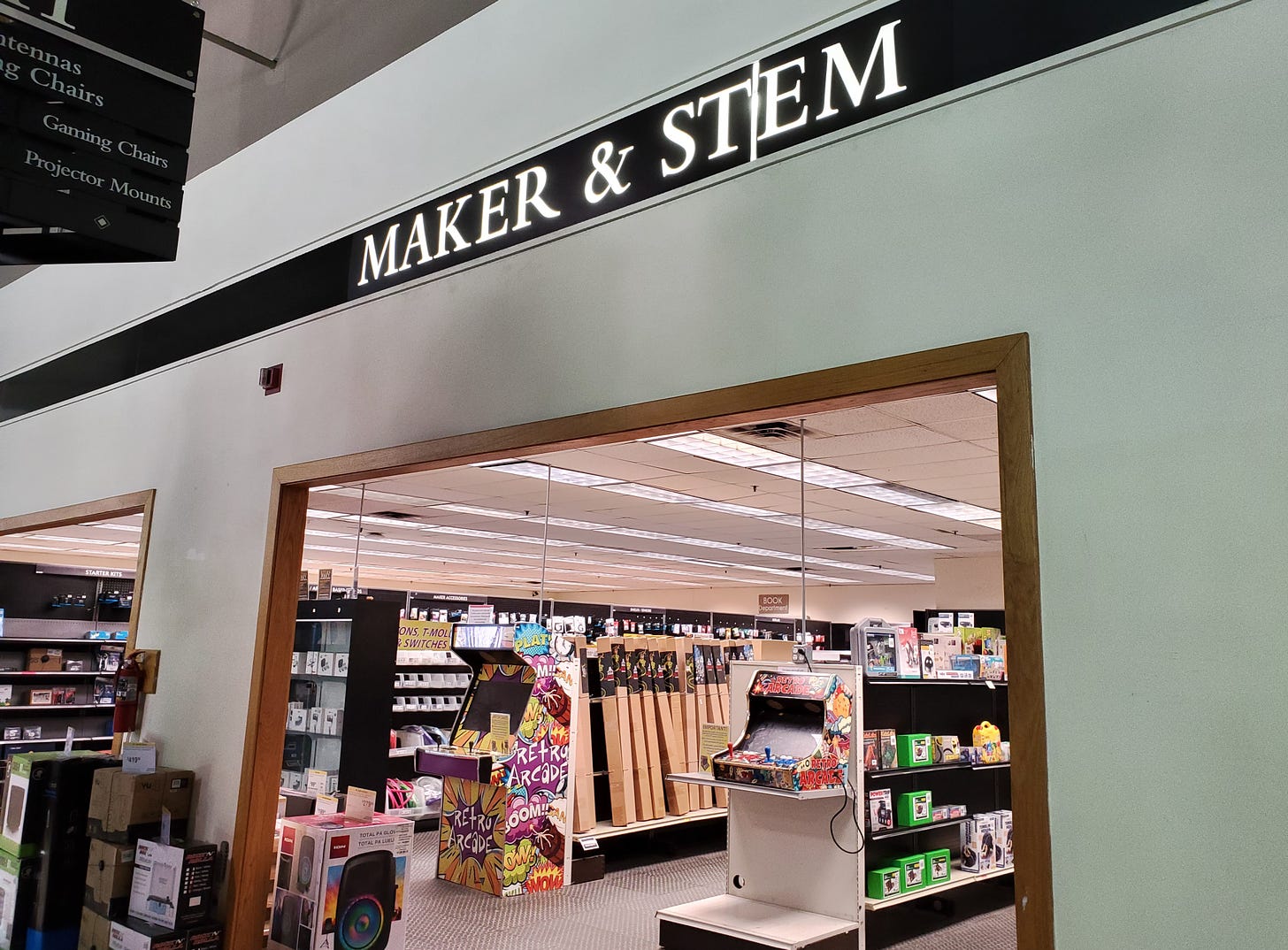
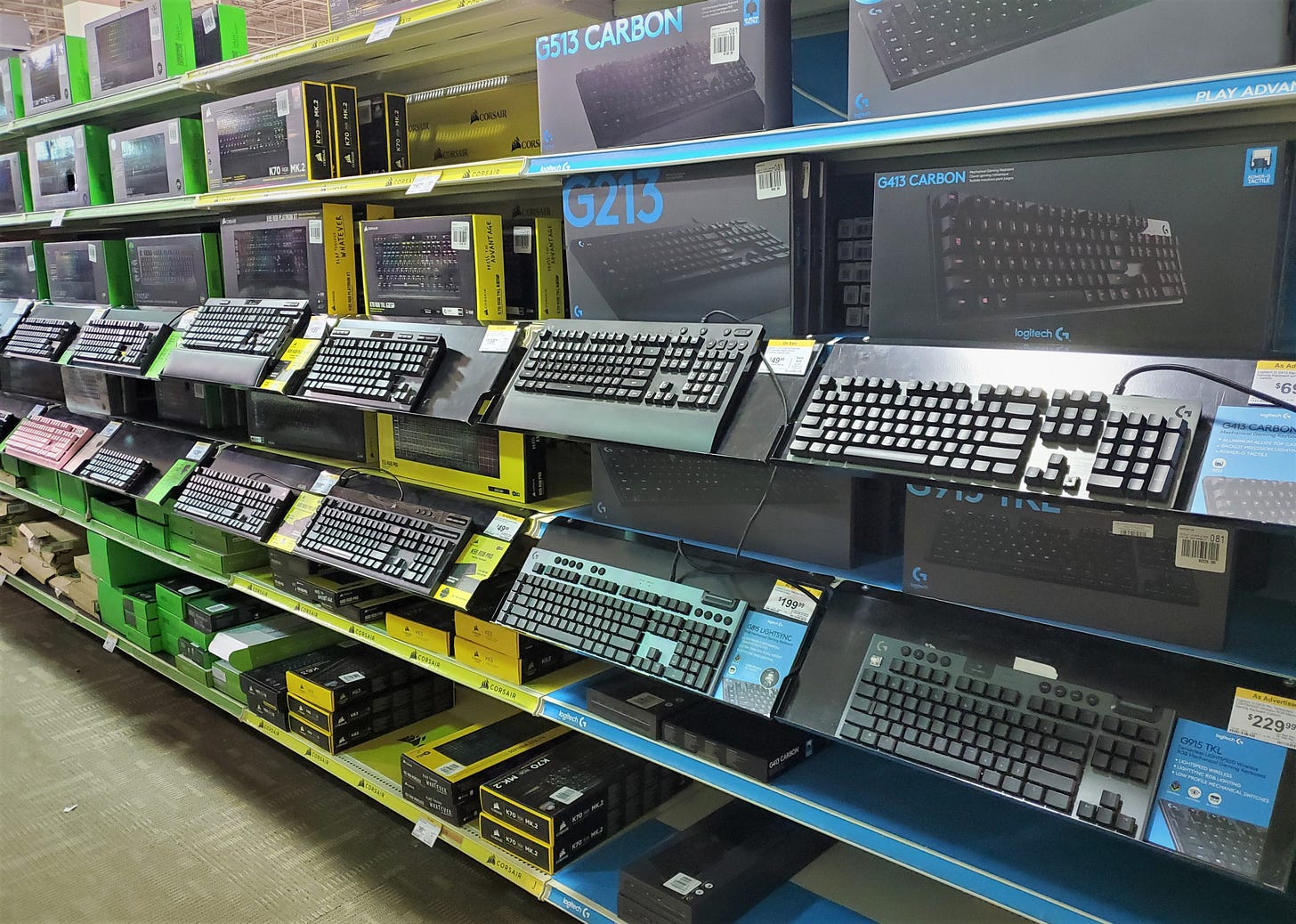
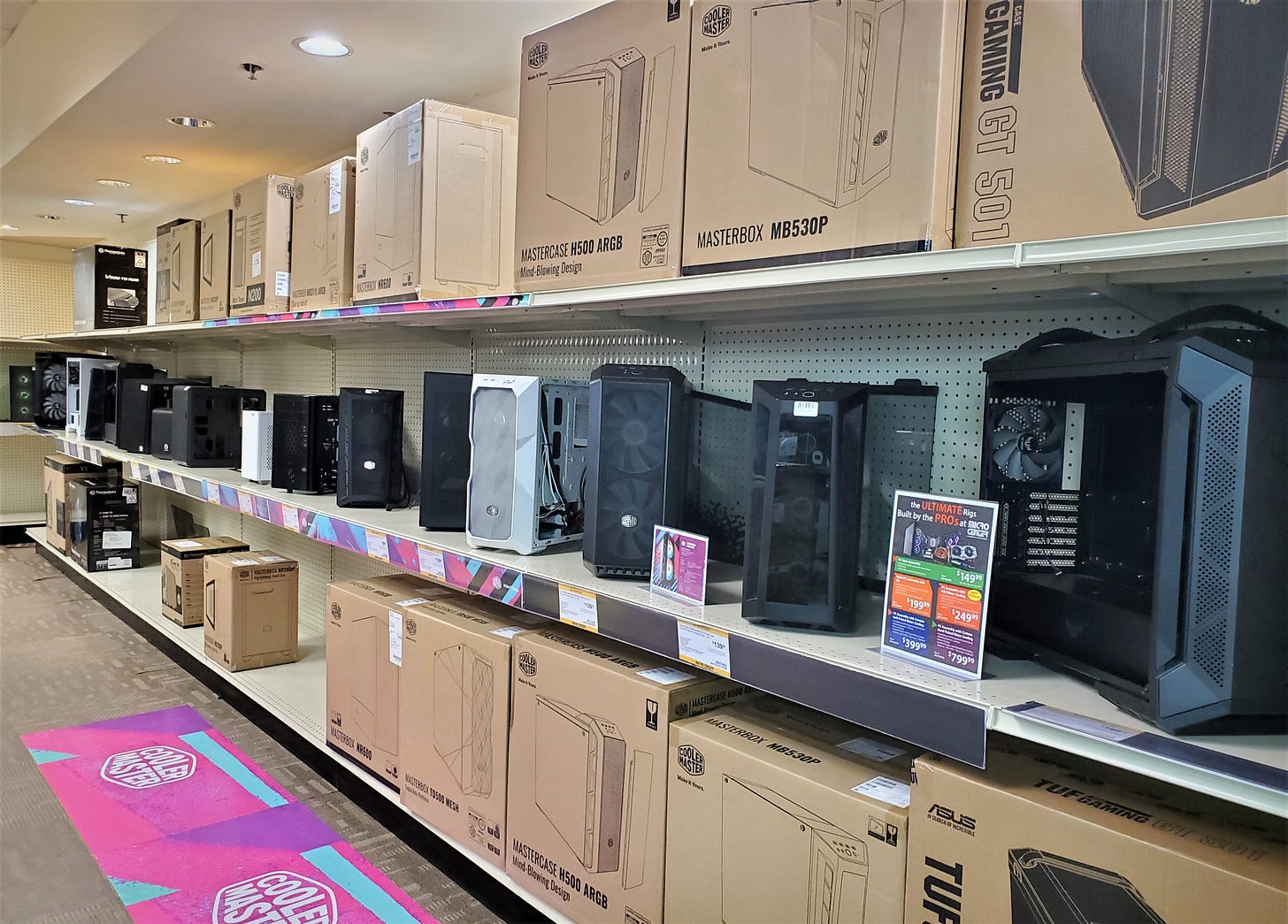
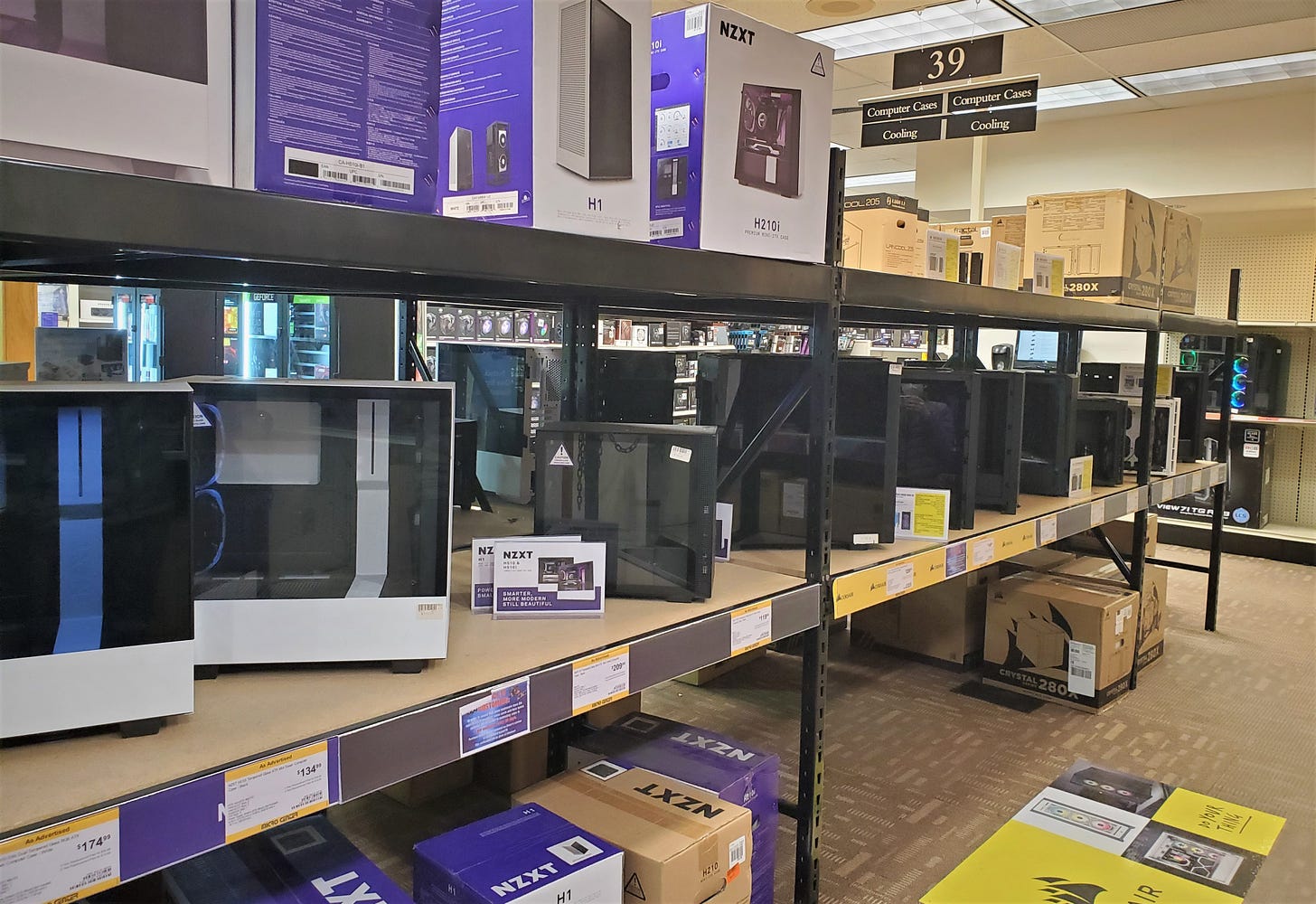
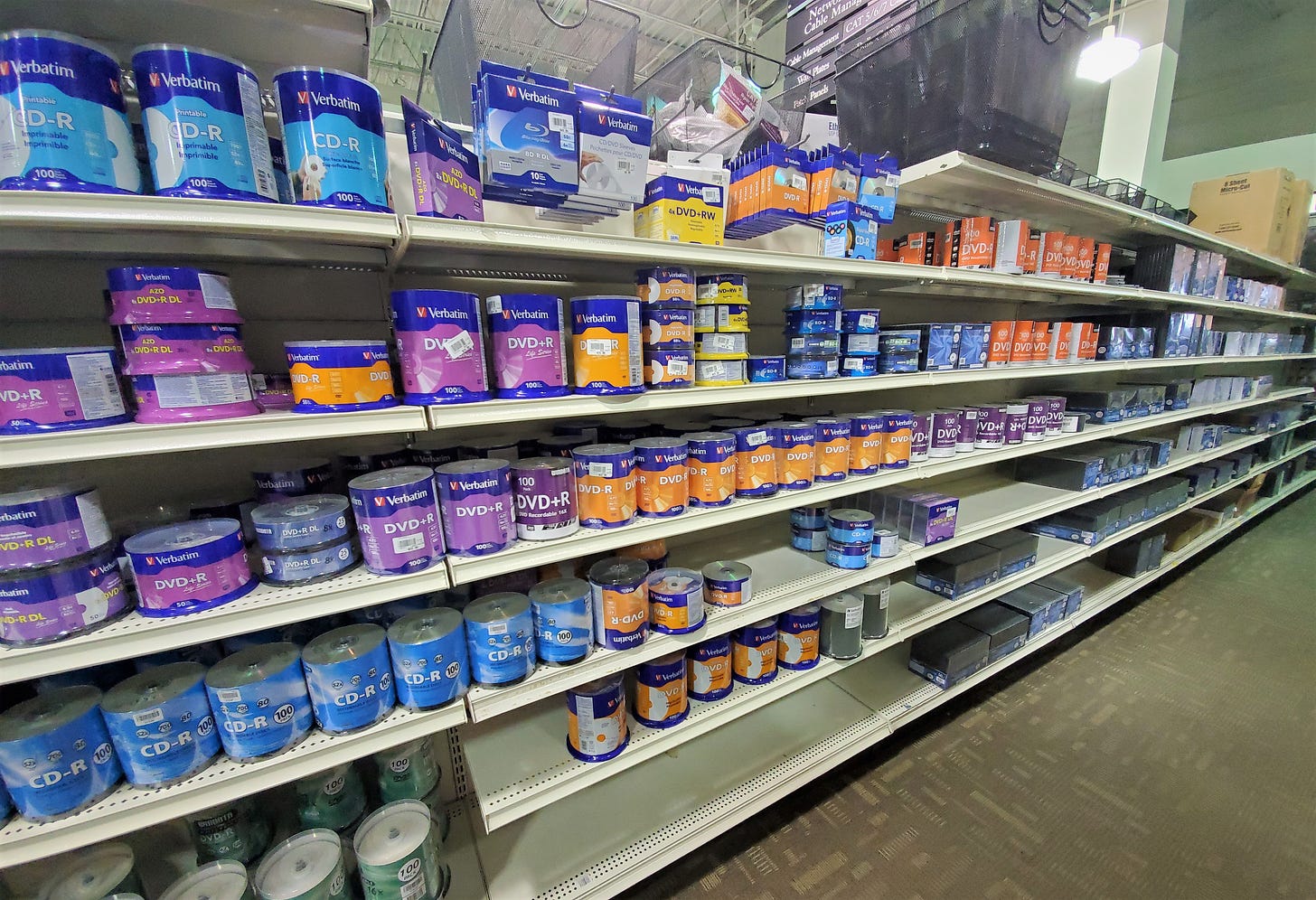
We have one in the Dallas area. I’m pretty sure my son single handedly kept that store open when he was in high school! Seriously, to Matthew’s point below-that store is located in what is known locally as the tech corridor, meaning there is a high concentration of computer enthusiasts in the 20 mile radius around that store.
I relied primarily on Micro Center to build my PC. It's a very good example of how to have thriving brick and mortar retail: with so few stores, I bet they never go into a new market without a lot of research, I bet they never take on a lot of debt. Also, by appealing to a core group of enthusiasts who do thinks like build computers, it means they have to have a staff of knowledgable enthusiasts themselves, which provides more value for customers who aren't as knowledgable. Another advantage is their niche: computer parts are both expensive and fragile and it can be a crapshoot relying on an ordinary shipper to deliver them in working condition. If you're going to spend $300 on a CPU and $1000 on a GPU, you want them to work out of the box. Lastly, they have a lot of trust. I'm sure that before they bring in a new product they make sure that the supplier is trustworthy, which Amazon doesn't always do. Linus Tech Tips recently had a video about scammers putting low capacity MicroSD cards in external hard drive enclosures and selling them as very low priced 2TB external hard drives. Probably not going to find those at MicroCenter.